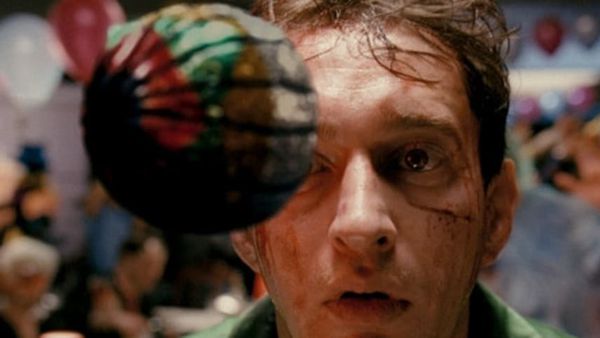Eye For Film >> Movies >> Day Watch (2006) Film Review

In the great struggle between light and darkness, sometimes there are shades of grey. Day Watch, sequel to massive Russian hit Night Watch, works with those shades to create something darker than its prequel ever hinted at. It gives us conflict on a grand scale, from an opening sequence with Mongolian warriors through to the destruction of present day Moscow, yet it is the human drama at its core which really gives it its power.
For those who haven't seen Night Watch, it's important to know that Anton, the film's principal protagonist, once hired a witch to cast a spell on his ex wife, jeopardising the life of her unborn child. That child, Yegor, is now a teenager, and Anton has developed a deep love for him, but Yegor knows what his father did and, as a result, has allied himself with darkness. More than that, he has emerged as a Great Other, a potentially deadly weapon in their hands. This film opens with Anton working with a trainee, Svyeta, whom, it gradually transpires, is herself a Great Other, allied with the forces of light. Since the two sides have maintained a fragile truce for centuries, it's essential to keep these two powerful individuals from meeting, lest the peace be shattered. What's more, Anton and Svyeta are falling in love, creating personal tension as Yegor, despite his past anger, realises that he wants his Dad all to himself.

It sounds complicated and it is. Watching the prequel first is highly recommended, but even then you may feel like you've been thrown in at the deep end. Day Watch draws heavily (albeit not explicitly) on Russian folklore, and it's full of little jokes and references which are difficult for outsiders to get. What's more, it plays with language in a way which is utterly delightful to a Russian speaker but practically untranslatable, despite the smart and innovative subtitling, leaving many viewers feeling a bit lost. There's practically nothing incidental in this film - every glimpsed road sign, every background decoration, has something to say. However, even if you miss most of this, you're still likely to find it an exciting ride. Its characters are engaging, its special effects genuinely special (even if it does get a bit overwhelmed by them towards the end), and its classic story has universal appeal.
The other remarkable thing about Day Watch, in the context of contemporary Russian cinema, is how daring it is when it comes to breaking social taboos. Its queer content, much more shocking there than in the west, is beautifully judged and presented with a sense of humour rarely matched in western parallels. There's something fresh about this, something genuinely inventive, and it makes Day Watch seem more human, more emotionally satisfying than its Hollywood counterparts. Because of that, it's more gripping as an action drama - we actually give a damn about what happens to these people. It's overcrowded, sometimes incoherent, and so confident in its own story that it sometimes neglects to let the audience know what's going on, but it is nevertheless a thrilling piece of cinema and well worth going to see.
Reviewed on: 05 Oct 2007




















